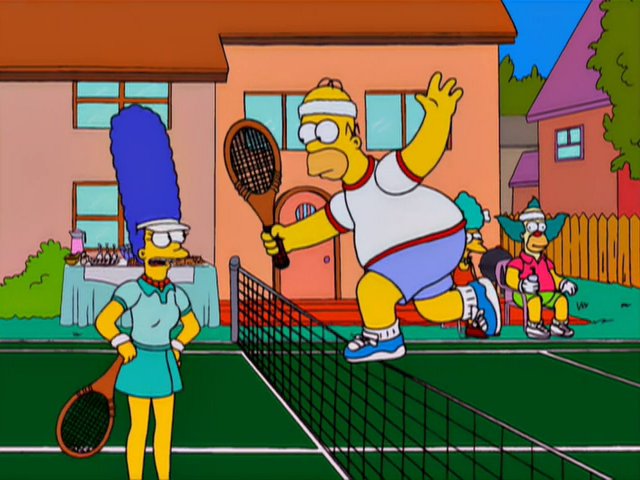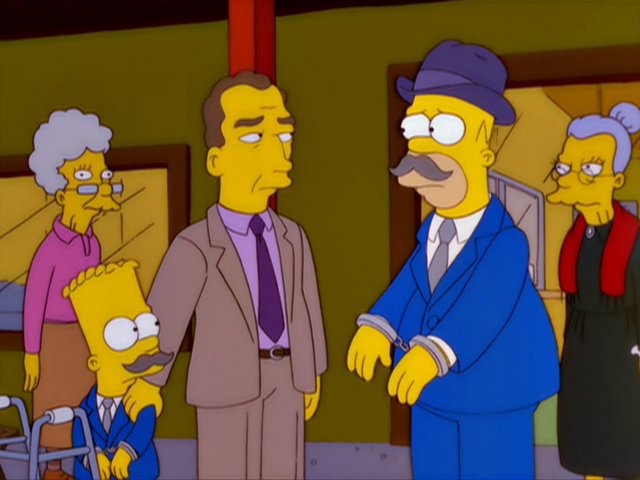
“All my love has come back in trophy form!” – Homer Simpson. Spoiler alert, that’s one of the less asinine things he says all episode.
Airdate: May 13th, 2001
Written By: Al Jean
Plot: A trip to the YMCA ends badly for Homer Simpson, as his attempt to score during a basketball game results in a rather substantial ACL tear. Stuck at home after the surgery, he finds himself babysitting the Flanders kids. This starts a domino effect that sees him start his own daycare center. His newfound affection for taking care of his kids winds up preoccupying him so much that he forgets about his own offspring, much to their displeasure.
Review:
Why is Jerkass Homer so infamous?
Really, it seems like, more than any other aspect of The Simpsons’ shift in tone and characterization as it reached the double-digit seasons, Jerkass Homer gets quite a bit of focus. It almost feels as if that was the sole reason behind the decline – “the show sucked around the time Homer became an idiotic ass.” Yes, that’s a simplification, but it seems to be one of the most common complaints about the show’s decline once Mike Scully took over as showrunner.
The thing is, Jerkass Homer is arguably as much a symptom as it is an individual ailment affecting The Simpsons. Yes, the fact that the central protagonist decayed into an almost astonishingly unlikable human being pretty much removes any hope for wanting him to succeed, and the fact that he still gets off easy removes the hope for an interesting sense of comeuppance, thus removing the viewer from an interest in the story. However, it’s indicative of a much larger rot at the show’s core. After all, Homer was always a bit of an ass at first glance – he was stupid, self-centered, and somewhat of a lout. However, not only were these balanced out by a certain innocence and a fierce devotion to his family, but he was so often written as a multifaceted and human character. In fact, that’s where so many of my favorite episodes come from. The character has degenerated into joke fodder, meant to get the easiest and broadest laughs with no regard for empathy or audience relation, all while undermining the smartness of the show before it and the stories that stem from that brilliance.
It parallels what happened to the series. Once challenging the status quo of network sitcoms and cartoons, The Simpsons wound up almost embracing the cliches of both simultaneously in a way that left neither party satisfied. Jerkass Homer is merely the prime example of a surprisingly complex and moving show being reduced to a simplistic and surprisingly callous shell of itself. It is a series that has become more insular, and in spite of the increased insanity of the plot twists, has become more rote and almost predictable. The soul is gone, the body is kept alive by the powers that be who refuse to do the merciful thing and let the show die.
But die it won’t. So instead, we must do the next best thing and leave it be for our sanity. We’re down to our last few episodes. And how appropriate a title to warn us of what we can expect as “Children of a Lesser Clod”?
I’m not gonna beat around the bush anymore – this episode was surprisingly awful. I mean, I wasn’t expecting much, but this failed to deliver on even my dramatically reduced expectations.










You must be logged in to post a comment.